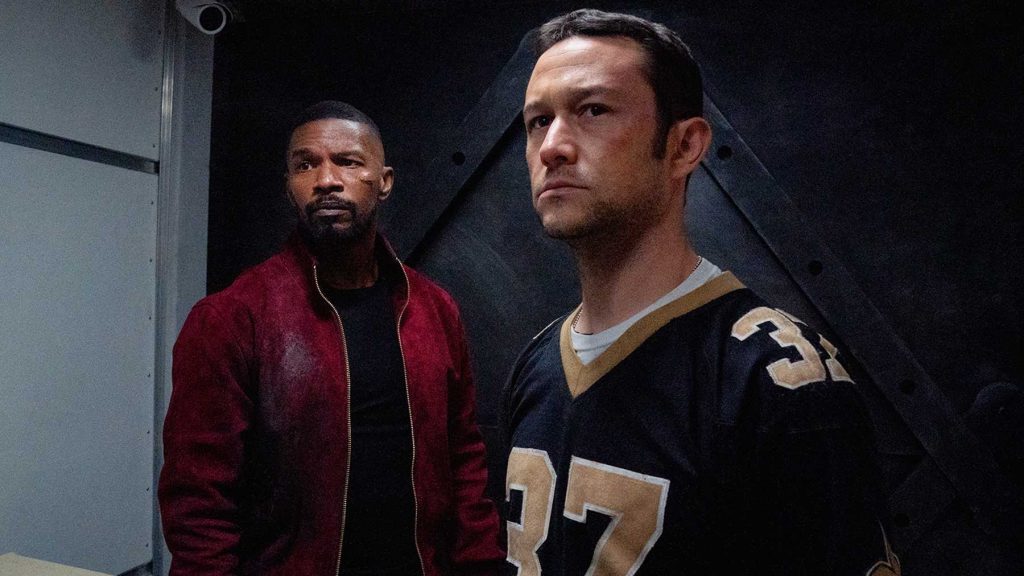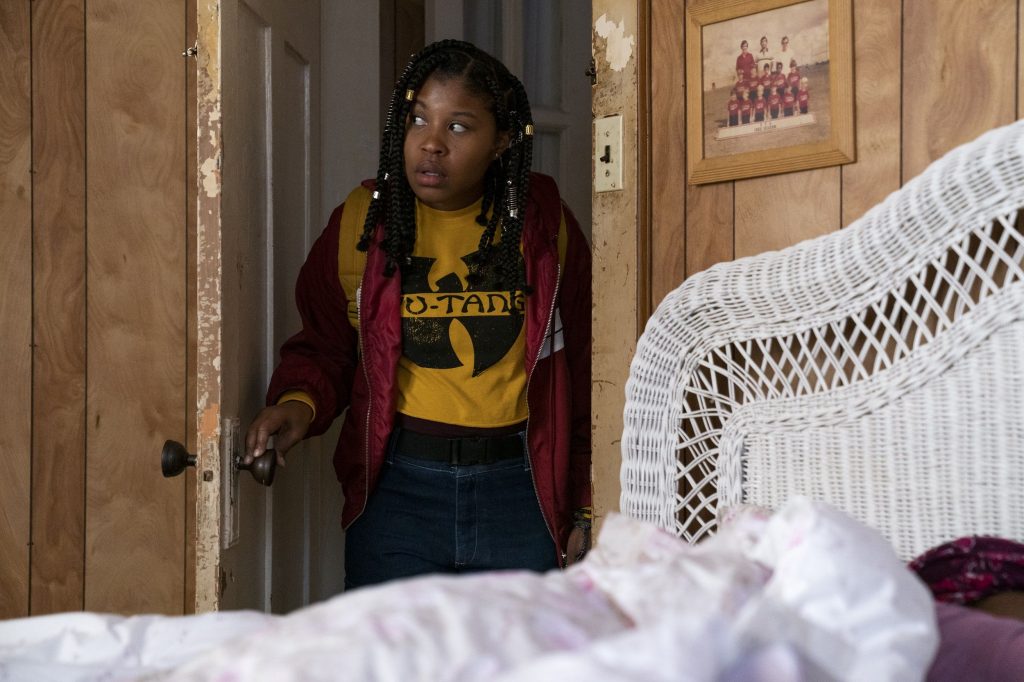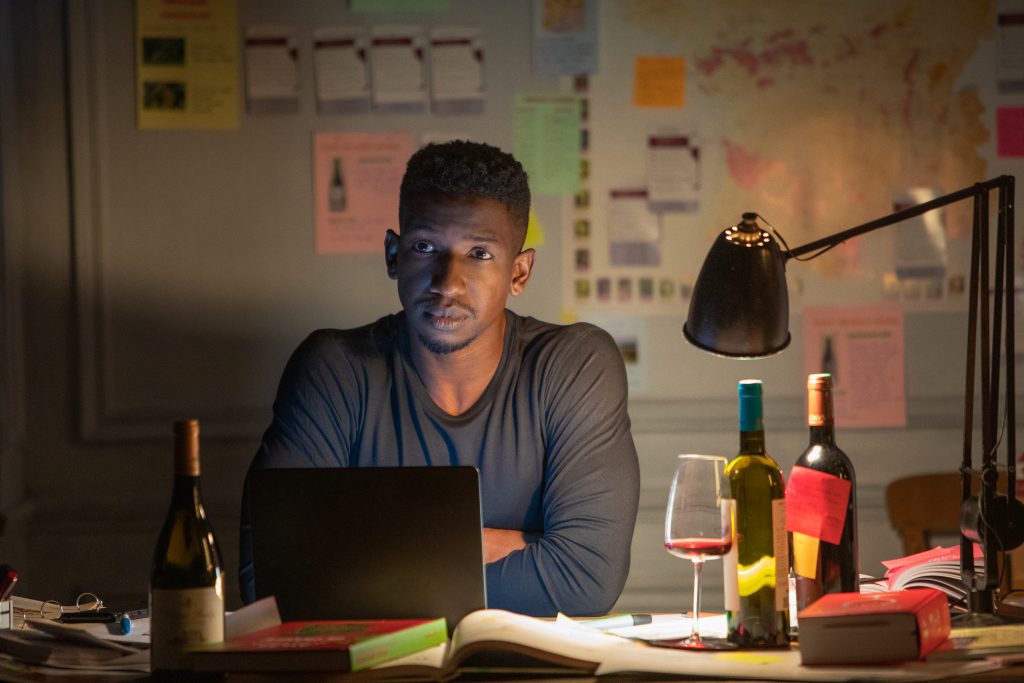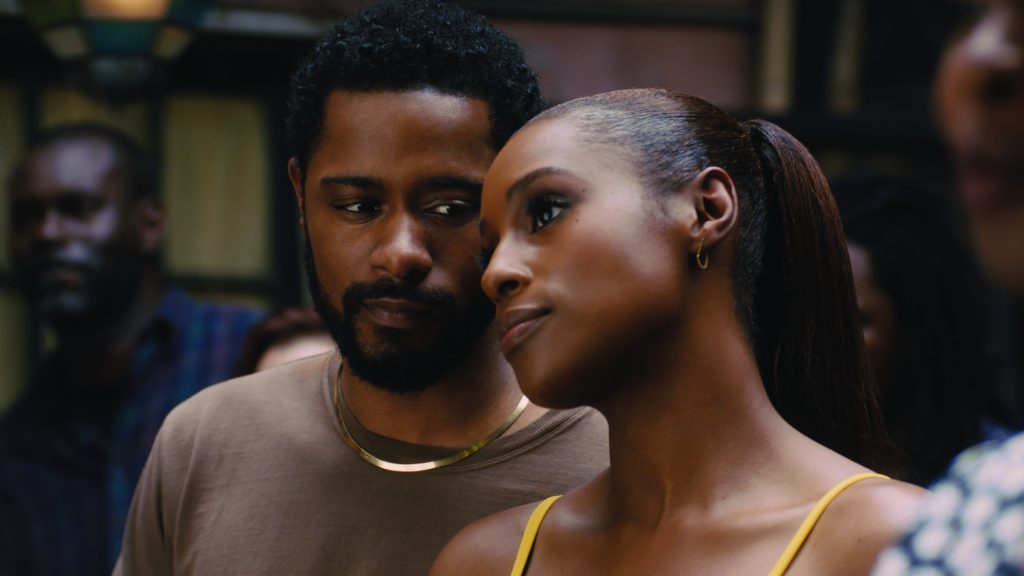August 16, 2020
by Carla Hay

Directed by Henry Joost and Ariel Schulman
Culture Representation: Taking place in New Orleans, the action thriller “Project Power” features a racially diverse cast (African American, white and Latino) representing the middle-class and the criminal underworld.
Culture Clash: An underground drug called Power, which has the ability to give people superpowers for five minutes each time the drug is ingested, is at the center of a power struggle between criminals, cops, a man on a revenge mission and the teenage rebel enlisted to help him.
Culture Audience: “Project Power” will appeal mostly to people who like “race against time” stories that have sci-fi elements, numerous fight scenes and gory visual effects.

How do you get a superpower? In fictional stories, there are so many ways. And in the world of the action thriller “Project Power,” getting a superpower means swallowing a capsule pill called Power that can have one of two results: give someone a superpower for five minutes or immediately kill the person who ingests it. And in the world of “Project Power,” people are each born with a superpower that they won’t know they have until they take the Power pill that will unleash the power. When the pill kills someone instantly, it’s usually a bloody and gruesome death, such as someone’s body self-exploding.
Is it worth the risk to take the Power pill? That’s a dilemma that characters in this movie, which is set in New Orleans, constantly have to face when they have access to Power. Of course, this is the type of drug that’s not approved by the U.S. Food and Drug Administration, so the underground/illegal status of the pill makes it even more valuable, especially to criminals. It’s why in the beginning of the movie, New Orleans is pretty much under siege by criminals who are taking the drug to commit and get away with violent crimes.
It’s during this chaos that three people’s lives collide: Frank (played by Joseph Gordon-Levitt), a cop who’s secretly ingesting Power to fight criminals; Robin (played by Dominique Fishback), a feisty teenager who’s been selling Power; and Art (played by Jamie Foxx), a military veteran who likes to call himself “The Major” who’s out for revenge. (The reason for Art’s vendetta is revealed in the movie.)
Frank knows Robin because she’s the one who sells Frank his Power pills. To ensure her loyalty, he also buys her a motorcycle for her birthday. Frank’s superpower is that he’s bulletproof and can can heal quickly from any injuries.
Frank is involved in a big chase scene with a robber, and it becomes almost impossible for Frank not to hide that he’s taken a Power pill, based on the superhuman way that he was able to be immune to deadly bullets. It might only be a matter of time before Frank’s boss Captain Craine (played by Courtney B. Vance) notices that Frank has superhuman abilities on the job.
Meanwhile, Art rolls into the area from Tampa, Florida, because he’s on a revenge mission. He has to do some investigating into who is responsible for a crime that he’s avenging. He knows that the people he’s looking for are involved in dealing the Power drug. Art stops by the apartment of a lowlife named Newt (played by Colson Baker), who takes a Power pill when he figures out that Art is looking for him and there’s going to be a big fight. This showdown between Art and Newt kicks off a series of high-octane action scenes that involve a lot of mayhem, blood and destruction.
Art and Robin “cross paths” when Art kidnaps her and basically forces her to help him on his mission to find the crime lord responsible for overseeing the illegal sales of Power in the area. Why? Because Robin is a local drug dealer of Power, and Art figures that she can be easily pressured into giving up information that will lead to the higher-ups on the drug-dealing hierarchy.
When she finds out the reason why Art is hell-bent on revenge, Robin becomes more sympathetic to him and a willing ally. But Frank is after Art because he’s convinced that Art is one of the bad guys. And so, Robin is somewhat caught in the middle, and she has to decide which person she can trust more.
The two chief villains of the story are Biggie (played by Rodrigo Santoro), who’s a typical scumbag type who inevitably takes someone hostage in the movie, and Gardner (played by Amy Landecker), the type of boss who walks around in power suits and gets other people to do the dirty work. There’s nothing inherently scary or memorable about these two generic villains.
“Project Power” (directed by Henry Joost and Ariel Schulman) is the type of movie where the characters are constantly chasing after or at the mercy of something that can “get into the wrong hands.” The main reason why people will want to see “Project Power” is to see what type of superpowers that characters will get to when they take the pill. The movie is essentially a showcase for these visual effects and chase scenes.
On the one hand, it’s refreshing to see an African American teenage girl have a prominent role in an action flick, when this type of role usually goes to male actors. On the other hand, “Project Power” (written by Mattson Tomlin) falls back on some over-used and negative stereotypes that African American teens in urban areas are criminals, because Robin is basically a drug dealer.
And the movie has this other tired cliché about African Americans: This teenage drug dealer is also an aspiring rapper. If this role had gone to someone who isn’t African American, it’s doubtful that the character would be a drug dealer/wannabe rapper. There’s a scene in the movie where Robin does a freestyle insult rap to a teacher who tries to discipline her.
The movie also has Robin as another African American negative stereotype: She’s the product of a financially deprived, broken home: She lives with her single mother Irene (played by Andrea Ward-Hammond), who’s struggling with an unnamed illness, and Robin has to be her caretaker. Andrea has no idea that her daughter is a drug dealer, even though it’s obvious that Robin’s minimum-wage, part-time job at a fast-food joint isn’t the reason why Robin has enough cash on her to help with the household bills.
All of these negative stereotypes would be extremely annoying if not for the fact that there is some redemption for Robin, and “Project Power” doesn’t spend a lot of time on these lazy and unimaginative clichés. What saves this movie from being a mindless set of action sequences is that Foxx and Gordon-Levitt have a push-and-pull rapport that is very entertaining to watch. Fishback also has some moments where she’s a scene-stealer.
“Project Power” also has some not-so-subtle messaging about how power (or the idea of having power) can be so addicting that people will stop at nothing to get it, even if it means risking death. There are some scenes where superpowers that are only supposed to last five minutes seem to go longer than five minutes. But most people watching this movie aren’t going to sit there and nitpick by keeping track of the length of time that the superpowers are really in effect. They just want to a lot of thrilling action scenes and at least one “freak creature” that hasn’t been seen before in a movie.
Netflix premiered “Project Power” on August 14, 2020.




